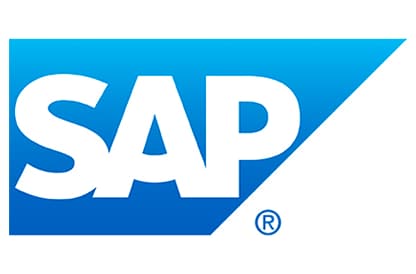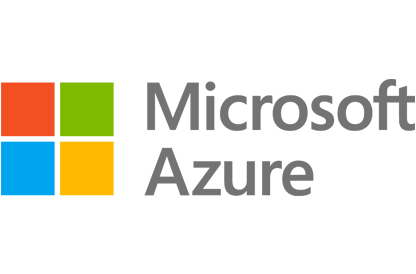Why OpenText
Why OpenText
Overview Why OpenText
OpenText brings decades of expertise to help you unlock data, connect people and processes, and fuel AI with trust
Manage and connect data
Unify data seamlessly across your enterprise to eliminate silos, improve collaboration, and reduce risks
AI-ready information
Get AI-ready and transform your data into structured, accessible, optimized information
Built-in security and compliance
Meet regulatory and compliance requirements and protect your information throughout its lifecycle
Empowering people
Overview Empowering people
OpenText helps people manage content, automate work, use AI, and collaborate to boost productivity
Customers
See how thousands of companies around the world are succeeding with innovative solutions from OpenText
Employees
Our people are our greatest asset; they are the life of the OpenText brand and values
Corporate Responsibility
Learn how we aspire to advance societal goals and accelerate positive change
Partners
Find a highly skilled OpenText partner with the right solution to enable digital transformation
How we compare
Content Management
Service Management
Deploy anywhere
Overview Deployment options
Explore scalable and flexible deployment options for global organizations of any size
Sovereign cloud
Local control. Global scale. Trusted AI
Private cloud
Your cloud, your control
On-premises
Free up resources, optimize performance and rapidly address issues
Public cloud
Run anywhere and scale globally in the public cloud of your choice
AI leadership
Overview Aviator AI
See information in new ways
OpenText™ Aviator™ AI
AI that understands your business, your data, and your goals
OpenText™ MyAviator
Say hello to faster decisions. Your secure personal AI assistant is ready to get to work
OpenText™ Business Network Aviator™
Gain better insights with generative AI for supply chains
OpenText™ Content Aviator™
Power work with AI content management and an intelligent AI content assistant
OpenText™ Cybersecurity Aviator™
Improve your security posture with AI cybersecurity and agile threat detection
OpenText™ DevOps Aviator™
Enable faster app delivery, development, and automated software testing
OpenText™ Experience Aviator™
Elevate customer communications and experiences for customer success
OpenText™ Service Management Aviator™
Empower users, service agents, and IT staff to find the answers they need
Aviator AI
Overview Aviator AI
See information in new ways
OpenText™ Aviator™ AI
AI that understands your business, your data, and your goals
OpenText™ MyAviator
Say hello to faster decisions. Your secure personal AI assistant is ready to get to work
OpenText™ Business Network Aviator™
Gain better insights with generative AI for supply chains
OpenText™ Content Aviator™
Power work with AI content management and an intelligent AI content assistant
OpenText™ Cybersecurity Aviator™
Improve your security posture with AI cybersecurity and agile threat detection
OpenText™ DevOps Aviator™
Enable faster app delivery, development, and automated software testing
OpenText™ Experience Aviator™
Elevate customer communications and experiences for customer success
OpenText™ Service Management Aviator™
Empower users, service agents, and IT staff to find the answers they need
Analytics
Overview Analytics
Predict, act, and win with real-time analytics on a smarter data platform
Business Network
Overview Business Network
Connect once, reach anything with a secure B2B integration platform
Content
Overview Content
Reimagine knowledge with AI-ready content management solutions
OpenText™ Content Aviator™(AI)
Supercharge intelligent workspaces with AI to modernize work
Cybersecurity
Overview Cybersecurity
Integrated cybersecurity solutions for enterprise protection
OpenText Cybersecurity for SMBs & MSPs
Purpose built data protection and security solutions
OpenText™ Cybersecurity Aviator™(AI)
Reinvent threat hunting to improve security posture with the power of agile AI
DevOps
Overview DevOps
Ship better software—faster—with AI-driven DevOps automation, testing, and quality
Experience
Overview Experience
Reimagine conversations with unforgettable customer experiences
Observability and Service Management
Overview Observability and Service Management
Get the clarity needed to cut the cost and complexity of IT operations
OpenText™ Service Management Aviator™(AI)
Redefine Tier 1 business support functions with self-service capabilities from private generative AI
APIs
Overview APIs
Build custom applications using proven OpenText Information Management technology
OpenText™ API Services
Build it your way with OpenText Cloud APIs that create the real-time information flows that enable custom applications and workflows
Device and Data Protection
Overview Device and Data Protection
Protect what matters, recover when it counts
Unified Endpoint Management Tools
- OpenText™ Endpoint Management
- OpenText™ ZENworks Suite
- OpenText™ ZENworks Service Desk
- OpenText™ ZENworks Configuration Management
- OpenText™ ZENworks Endpoint Security Management
- OpenText™ ZENworks Full Disk Encryption
- OpenText™ ZENworks Endpoint Software Patch Management
- OpenText™ ZENworks Asset Management
Solutions
Trusted Data & AI
Overview Trusted Data & AI
Secure information management meets trusted AI
OpenText AI Data Platform
A unified data framework to elevate data and AI trust
OpenText™ Aviator Studio
A place where you can build, deploy, and iterate on agents in your data's language
OpenText Discovery
A set of tools to help ingest data and automate metadata tagging to fuel AI
OpenText Data Compliance
A suite of services and APIs that make governance proactive and persistent
OpenText Aviator AI Services
Professional services experts who help you on your AI journey
Information Reimagined
Overview Information Reimagined
Get greater visibility and sharper insights from AI-driven information management. Ready to see how?
Knowledge reimagined
Transform daily work with enterprise content management powered by AI
Service Management reimagined
Cut the cost and complexity of IT service management, AIOps, and observability
Connections reimagined
AI-powered B2B integration for supply chain success
Conversations reimagined
Drive value, growth, and loyalty with connected customer experiences
Engineering reimagined
Agile development and software delivery? It only seems impossible
Security reimagined
Cybersecurity for the Enterprise
Decisions reimagined
Unlock insights with AI data analytics
Artificial Intelligence
Overview Aviator AI
See information in new ways
OpenText™ Aviator™ AI
AI that understands your business, your data, and your goals
OpenText™ MyAviator
Say hello to faster decisions. Your secure personal AI assistant is ready to get to work
OpenText™ Business Network Aviator™
Gain better insights with generative AI for supply chains
OpenText™ Content Aviator™
Power work with AI content management and an intelligent AI content assistant
OpenText™ Cybersecurity Aviator™
Improve your security posture with AI cybersecurity and agile threat detection
OpenText™ DevOps Aviator™
Enable faster app delivery, development, and automated software testing
OpenText™ Experience Aviator™
Elevate customer communications and experiences for customer success
OpenText™ Service Management Aviator™
Empower users, service agents, and IT staff to find the answers they need
Industry
Overview Industry solutions
Improve efficiency, security, and customer satisfaction with OpenText
Energy and resources
Transform energy and resources operations with cloud, cybersecurity, and AI
Financial services
Boost customer experience, compliance, and efficiency with AI
Government
Reimagine your mission with government-secure information management
Healthcare and life sciences
Improve care delivery and patient engagement with AI-powered solutions
Legal
Modernize legal teams with automated, AI-powered legal tech solutions
Manufacturing
Modernize manufacturing operations and logistics to reduce costs and ensure compliance
Retail and consumer goods
Enhance consumer engagement with omnichannel retail solutions and AI
Enterprise Application
Overview Solutions for Enterprise Applications
Run processes faster and with less risk
Services
Services
Overview Services
Achieve digital transformation with guidance from certified experts
Professional Services
Modernize your information management with certified experts
Customer Success Services
Meet business goals with expert guidance, managed services, and more
Support Services
Turn support into your strategic advantage
Managed Services
Free up your internal teams with expert IT service management
Learning Services
Discover training options to help users of all skill levels effectively adopt and use OpenText products
Professional Services
Overview Professional Services
Modernize your information management with certified experts
Customer Success Services
Overview Customer Success Services
Meet business goals with expert guidance, managed services, and more
Support Services
Overview Support Services
Turn support into your strategic advantage
Managed Services
Overview Managed Services
Free up your internal teams with expert IT service management
Learning Services
Overview Learning Services
Discover training options to help users of all skill levels effectively adopt and use OpenText products
Partners
Find a Partner
Overview Find a partner
Find a highly skilled OpenText partner with the right solution to enable digital transformation
Cloud Partners
Overview Cloud Partners
OpenText partners with leading cloud infrastructure providers to offer the flexibility to run OpenText solutions anywhere
Enterprise Application Partners
Overview Enterprise Application Partners
OpenText partners with top enterprise app providers to unlock unstructured content for better business insights
Partner Solutions
Overview Partner Solutions
Discover flexible and innovative offerings designed to add value to OpenText solutions
Resources for Partners
Overview Resources for Partners
Discover the resources available to support and grow Partner capabilities
Support
Overview Customer Support
Get expert product and service support to accelerate issue resolution and keep business flows running efficiently
Resources
Overview Resources
Explore detailed services and consulting presentations, briefs, documentation and other resources
Choose your region:
Europe, Middle East and Africa
Asia–Pacific
 NCDEX
NCDEX
NCDEX chose OpenText Vertica as the platform for its data analytics environment—significantly reducing TCO, increasing performance, and giving users easier access to their data

Products and services
Outcomes
- 96.6% lower database licensing fees
- 27.8% lower hardware costs
- 77% reduction in data requests from business users
- Accelerates data ingestion and reporting
Challenge
Democratize access to data analytics within the enterprise, accelerate reporting and increase flexibility, while cutting costs.
Details
Giving control to business users
To support business growth, NCDEX wanted to ensure that its internal business users had access to fast and flexible tools for financial analysis, modeling, and reporting. With the company's existing Oracle toolset, business users were overly dependent on technical subject- matter experts (SMEs) to perform actions such as creating new reports or preparing new subsets of data for analysis. These SME skills were expensive and hard to find in the market. Equally, the solution itself was costly to license and to run, in part because it required specialized dedicated server hardware.
Shreekanth Shivram, Senior Vice President at NCDEX, explains: “We were unable to expose data directly to business users, so they weren't able to slice and dice it or try out new ideas for themselves. Making any changes to reports required the time and specialist skills of an Oracle SME, which meant the business couldn't adjust its analyses quickly when external conditions changed.”
The ability to deploy Vertica (now OpenText) on commodity hardware was a big advantage, as was the volume-based licensing model, which promised to work much better than the existing per-socket model from Oracle.
Choosing a strategic data platform
Aiming to shrink its hardware footprint, reduce database licensing fees, and create a more open and inclusive analytics toolset, NCDEX set out to replace its decade-old Oracle environment. After reviewing several other platforms, the company engaged KPMG as its implementation partner.
“KPMG suggested we look at Vertica (now OpenText), and it was a real eye-opener for us,” recalls Shreekanth Shivram. “The ability to deploy Vertica (now OpenText) on commodity hardware was a big advantage, as was the volume-based licensing model, which promised to work much better for us than the per-socket model from Oracle. Following a three-week proof of concept [POC], we were comfortable that Vertica (now OpenText) was the right solution for NCDEX.”
Important factors in the POC included the time required to transform and load data from upstream sources into OpenText (formerly Vertica), and the speed of rendering existing reports. On both counts, the new Vertica Analytics Platform environment proved capable of either matching or improving on the previous environment—in addition to offering dramatic cost savings.
“Our initial goal was simply to migrate the asis environment from Oracle to Vertica (now OpenText),” says Shreekanth Shivram. “We deployed Vertica (now OpenText) in a virtualized configuration on three commodity servers for added resilience, and we migrated all processes and procedures from Oracle without changing or adding to the existing functionality.”
The migration ran smoothly over the course of three months, during which time NCDEX ran both the old and new systems in parallel to give the business confidence in the integrity of the new environment. Once the technical migration was complete, the IT function worked with ten different departments to get their certification for the new data platform and to ensure that they were comfortable to take ownership of the data. As part of the migration, NCDEX also switched from Oracle BI to Microsoft Power BI. The company used Oracle BI reports to prove the integrity and accuracy of the migration process for the backend data from Oracle to OpenText (formerly Vertica).
Achieving concrete benefits
For NCDEX, the most prominent benefit of migrating to OpenText (formerly Vertica) has been the 96.6% reduction in annual database licensing fees. Furthermore, the virtualization of the database platform and its deployment on commodity hardware have unlocked annual infrastructure savings of 27.8% versus the dedicated proprietary environment previously used by NCDEX for its Oracle Database.
With further optimization possible, the time required to load batches of data has already fallen from three to two hours, providing a useful additional window of time to fix any overnight issues before the markets open.
“Since we went live with Vertica (now OpenText), our costs have fallen significantly and we have improved performance in many areas,” says Shreekanth Shivram. “Another good sign is that requests for new reporting have disappeared, which shows that business users are now able to analyze their own data for themselves. Over the course of a month, we saw an average reduction of approximately 77% in data requests, which has helped our technical specialists concentrate on other priorities.”
Looking to the future, NCDEX is considering the introduction of intra-day data ingestion and reporting—currently, analysis is performed on the previous day's data. Shreekanth Shivram concludes: “Vertica (now OpenText) has given us the performance and flexibility to consider new use cases for analytics. Instead of being tied up with data administration, we can really add value to the business.”
Since we went live with Vertica (now OpenText), our costs have fallen significantly, and we have improved performance in many areas. Another good sign is that requests for new reporting have disappeared, which shows that business users are able to manage their own data for themselves.
About NCDEX

National Commodity & Derivatives Exchange Limited (NCDEX) is a multi-commodity exchange that is revolutionizing India’s agricultural sector. NCDEX is the country's largest agricultural derivatives exchange, working as an efficient platform for price discovery and price risk management. By enabling the trading of financial instruments, including commodity futures, options in goods, and index futures, NCDEX serves the needs of all participants in the agri value chain.





